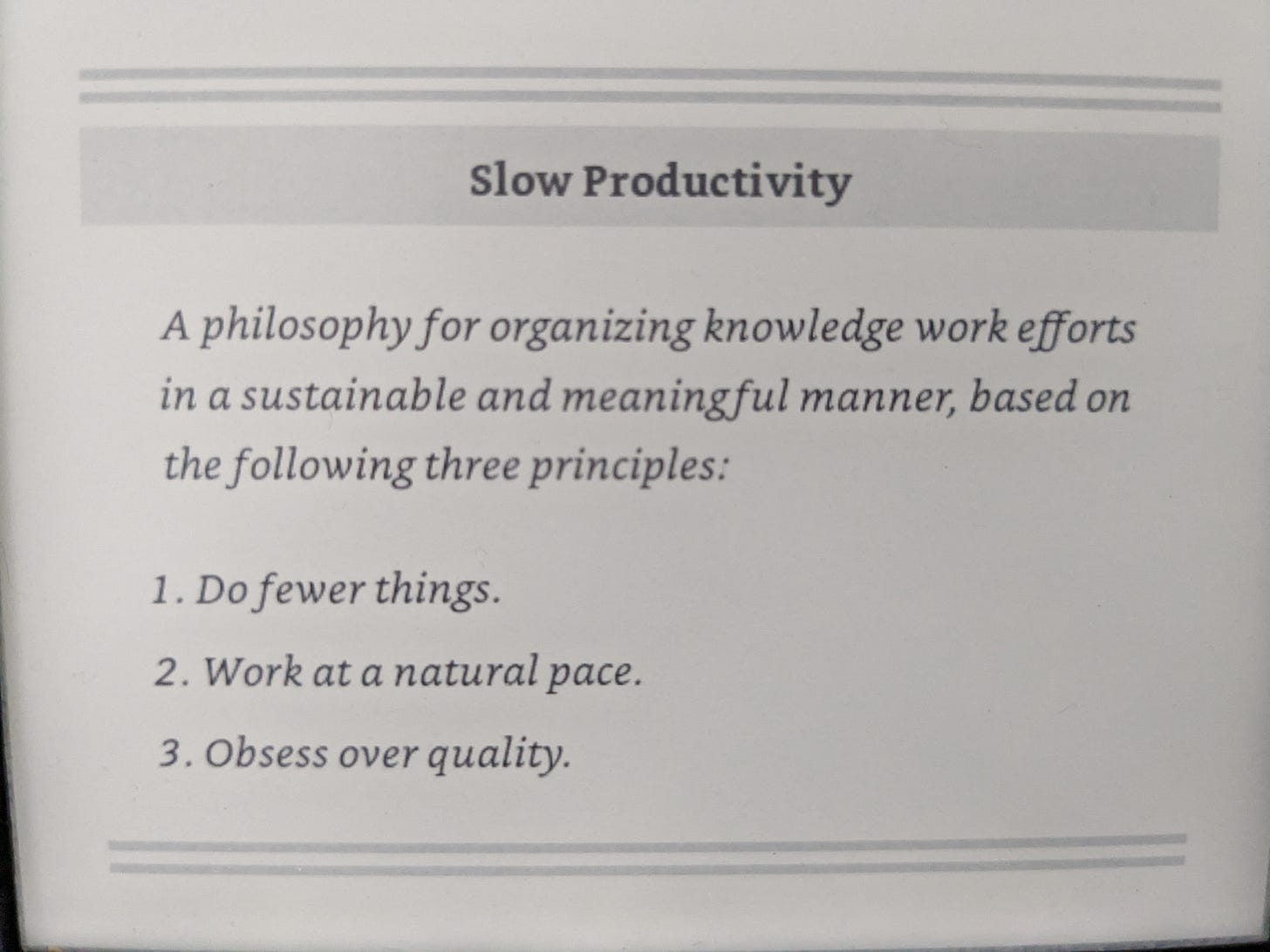Do you get lots done, but at a cost? Or are you on the other end of the spectrum, with ‘getting stuff done’ often out of reach? Come this way, my friend…

I have always been a master at Getting Stuff Done.
I’ve written twelve books. I’ve had a private therapy practice for decades. I completed a year of daily hour-long public meditations for the Earth. I’ve co-run a Buddhist temple for nine years which involves wearing many hats including landlord, mediator, marketing consultant, accountant and Buddhist teacher.
In my model of therapy, everyone is seen as containing different parts - self-protective parts that keep us safe, and vulnerable parts that hold onto difficult emotions. Our self-protective parts can be divided into two categories: those that help us to avoid distress by comforting us or distancing us (distractors), and those that help us to avoid distress by proactively organising things so we don’t mess up or so that we achieve worldly success (managers).
You may be able to guess that I have an excellent team of manager parts. These parts of me help me to keep an empty inbox, and they urge me to do my annual tax return on the first day I’m allowed to1. They plough through admin. They decimate to-do lists. They keep me going once I’ve committed to something. They squeeze extra tasks into my days. They are good at networking, influencing others, and getting me a good deal. They work damned hard. Sound good so far?
There is a cost.
There is an ongoing cost.
- I get caught in spirals of mini-addiction and feelings of never-enough. With the spotlight shining on my achievements I can get trapped by, for example, checking my Going Gently statistics 🙄 rather than lingering in the delight of the writing or the being read.
- My team of managing parts get understandably tired, and periodically they collapse. I am lucky that these are usually mini-collapses, like when my sacred retreat days are swallowed up by recovery and I can only manage to watch trashy TV, or I get ill for a few days, or I am forced to cancel a swathe of appointments.
- I miss out on huge chunks of life. I am too busy grinding and worrying and plotting to enjoy lazy days in the temple garden, or to offer time to strangers who might become friends, or to lean into doing what Mary Oliver said we should doing with our one and precious life: paying attention.
There is also an accumulative cost.
After thirty years of working in this way, I started to feel the whole system creaking, like a house that had been build on bad foundations.
It was a house that had been build on bad foundations. But, to stretch my metaphor a little further, I know that I used the best materials for my foundations that I had at the time. I learnt to get attention at home and at school by being ‘good’ and ‘clever’. I managed my feelings of never-being-enough by pushing harder. I avoided messy, overwhelming feelings by controlling my environment as much as I could. These strategies were better than nothing, but they had fault lines running through them.
Over the past few (five? thirty?) years I have been gently digging down and offering care and attention to the suffering I found down there. As my foundations are strengthened, I have been watching new walls and windows and whole new structures sprout. It’s rather marvellous.
And so that brings me to the part where I will try to pass on the wisdom I have received. Maybe your system is creaking like mine. Maybe it has coped by moving in the opposite direction - away from compulsion and towards avoidance. Either way, I can tell you that there is a way of getting stuff done with gentleness. I am moving into it, and it is a great relief.

Suggestions for everyone:
⭐ Go gently. This, you may not be surprised to hear, is my top advice when approaching anything, but especially when approaching systems inside us that are creaking. It is likely that you will have been a certain way for a very long time. There will be good reason why these things work as they do. Just choosing a wall and taking a sledge-hammer to it is not so wise.
Instead, approach your building with gentleness. Dig down into your foundations with a spoon. Even though it might feel slower, you’ll actually be making progress as quickly as you can, rather than causing backlashes that will take even longer to get through.
⭐ Be curious. Gather all the information you can from wherever you can gather it - by watching yourself as an impartial observer, by reading books and articles, by talking to friends. How do you do getting stuff done? What works? What’s the cost? What are the risks of doing it differently?
⭐ Follow your instinct. When it comes to deep change, I think we’re more in the territory of the mystery of the deep seas, rather than the simplicity of fixing a clock mechanism. We can allow dreams, our embodied experience, and strange synchronicities to guide us. It’s often hard to know for sure if we’re moving in a ‘good’ direction or not - maybe experiment with seeing how long you can stay in not-knowing and trusting that something bigger than you is at work.
⭐ Enjoy life along the way. It’s easy to fall into thinking that we’ll start enjoying ourselves just as soon as we kick that habit/lose that weight/get that job/pay off that debt/once our children leave home etc. etc. etc. There are only two problems with this. One is that we will always be works-in-progress (unless you are close to enlightenment and, if so, what are you doing here?!?) and life will keep on throwing different and unexpected curve balls at us. The other is that, today is all we have.
Today, now, is all we have. With this in mind, can you enjoy this sip of tea? Can you feel proud of this small achievement? Can you love your flawed and fallible self, just as it is?
Suggestions for people like me, whose managers are already working too hard:
⭐ Appreciate all your parts. These days I am much fonder of ALL the different parts of me - even the managers that drive me way too hard, and the distractors that force me into a fug of chocolate - because I know that they are all trying their best to help me. We are glorious wobbly messes of vulnerability propped up on all sides by self-protection. Considering how terrifying life is, and considering how many times we’ve been hurt or let down, isn’t it amazing that we’re standing upright at all?
⭐ Keep doing the healing work. Our managers tend to work too hard because they are a) trying to help us avoid feeling judged, rejected or shamed by others, and b) trying to stop us falling into our own deep beliefs about how worthless or awful we are. These pockets of woundedness deep inside us need attention, love and healing.
We can offer ourselves this healing in lots of different ways - by having pets or a garden, by being in supportive relationships, by connecting with nature, by going to 12 step groups, by getting therapy, by reading or by choosing to be alone… Whatever works for you (and whatever is accessible - it sucks that not everyone has access to it all) KEEP DOING IT.
⭐ Accept your limits. I have come to realise that a) I mostly actually enjoy working quite hard, and that b) even when I don’t enjoy it, I am unlikely to become a paragon of moderation in this area. There are downsides to being this way - and mostly I’ve found ways to live with them. I’ll keep moving gently towards a slower way of working, and, here I am - workaholicky warts and all. It could be worse!
Suggestions for people whose managers are a little quiet and who want to get more done:
⭐ Accept who you are. When we have difficult times as a child (and I say when, not if) some people’s systems go one way into managing (like mine) and some go the other way into avoiding (like some of my dearest friends). My way might be more socially acceptable and it might mean I end up with more ‘visible’ success, but I can assure you that it leads to just as much fuckery2 as avoidance does.
⭐ Get to know your parts. It is likely to be your distractor parts that are stopping you getting stuff done. These parts make us avoid things, or numb us out, or try and comfort us by tempting us into over-indulging, and we (understandably) think we’d be better off without them. In my experience, when we start to get to know these parts by listening to them (maybe try using my CLEAR check-in) we begin to understand why they’re doing what they’re doing and our feelings towards them soften. That doesn’t mean that they’ll stop causing chaos, but they may relax a teensy bit. It also means that we don’t feel quite as bad as we did before, and that we are able to bring some calm to our warring system.
⭐ Keep doing the healing work. See above. You might not feel like you deserve kindness if you’re messing things up, but that actually means that you need it even more than ever. And I know how hard it is to ask for help (I’m terrible at it) - maybe start small.
⭐ Try to be more gentle with yourself. If you are already doing very little, then this advice might seem crazy, but my experience of people who are blocked or ‘lazy’ is that their systems are actually working really hard to keep them distanced and safe, and that pushing even harder is likely to make things worse. Can you lower your expectations a little? Could you try to do five minutes of that thing rather than half an hour? Could you be more honest with yourself and with other people about your current limitations? Could you ask for more help?

Before I go, two final tips for you.
The first is that you check out Call Newport’s new book - ‘Slow Productivity’. Newport is known for his thinking on deep work and digital minimalism, and in this book he proposes that we will get more meaningful work done if we practice these three principles:
1. Do fewer things.
2. Work at a natural pace.
3. Obsess over quality.
I would personally replace the word ‘obsess’ with ‘pay attention to’ (let’s ease up a little!) but I found much gentle wisdom in these three principles and I will carry them with me. Maybe I’ll write more about them another time.
And finally, a piece from Josie George on simply doing the next right thing. I love the beauty of George’s prose, and I love it for its deep wisdom. In my humble opinion she is a non-Zen Zen master.
Thank you for travelling with me today. Do pass this piece on to anyone who might appreciate it:
I’d love to hear about your own struggles with getting stuff done, and please do also share what’s worked for you. We each contain so much wisdom.
With love.
Go gently,
Satya <3
I know this can be extremely annoying for some people… sorry! 😬
I’m not sure if I’ve ever used this word before in my writing and it has given me great joy 😉





Ha! I love this piece. This is me, I am a get stuff done sort of person. To the point of damaging my health. I decided to take a 6 months break where I would slow down, not stop but take it at a slower pace, and I am nine months in now and not willing to ever go back to my old ways. Sometimes I panic that I should be doing more and I have to talk myself down. It’s hard to break old habits.
This is a wonderful piece, Satya! At the risk of sounding like I’m pathologising it, whereas my intention is to provide a neurodivergence affirming lens, it seems very much to me like the “distractor” is my ADHD while the “manager” is my autism. It’s incredible how common they are together in their co-occurring presentation. They are masters at both conflicting with each other, each cancelling the other out. You would think they would create balance and harmony whereas it’s common to feel like you’re absolutely losing your mind, especially in midlife and with perimenopause in the mix. I can look back at my life thus far and see how the manager/autism has dominated at times, and other periods where chaos has reigned (distractor/ADHD). I see value in both, I just wish I could harness each one as and when I felt I needed it!